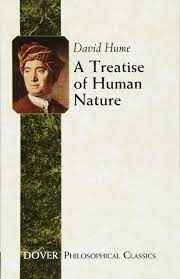
David Hume’s A Treatise of Human Nature is a well-known philosophical text that has been examined, debated, and discussed for centuries. Hume attempts to address fundamental issues with human nature in this work, including the nature of human knowledge, morality, the functioning of the human mind, and the nature of causality. Hume’s writing is renowned for its clarity, lucidity, and directness, and it has had an impact on a wide range of subjects, including epistemology, ethics, metaphysics, and more. Overall, his writings have influenced how we perceive human experience and are timeless works of literature.
David Hume’s philosophical work A Treatise of Human Nature has had a significant influence on our comprehension of the human condition. It is regarded as one of the most significant and influential philosophical works in the Western canon. Hume developed a theory of psychology and morality that is still relevant today and had an impact on theorists like John Stuart Mill, Immanuel Kant, and John Locke. Hume was able to develop a thorough understanding of human nature and the effects of various ethical choices by fusing the disciplines of philosophy, psychology, and morality.
Even though David Hume’s Treatise on Human Nature is regarded as a pillar of modern philosophy, its applicability in the present is frequently disregarded. The Treatise perfectly captures Hume’s ambition to challenge philosophical canons of thought. Hume was a daring thinker who sought to do so. While the second and third parts focus on moral, political, and religious issues, the first part presents Hume’s ideas on the nature of our perceptions. He also raises challenging issues regarding the nature of human understanding and our capacity to make fair judgments about the world around us.
A Treatise of Human Nature by David Hume is a philosophical work that makes an effort to explain the basis of morality and human behavior. Hume contends that our passions, beliefs, and desires can be used to explain human behavior. He defines these ideas as connected and suggests that they are the foundation of our choices and deeds. In addition, Hume argues that moral judgment comes from our feelings and sentiments rather than from reason or logic.
This document will discuss the Treatise of Human Nature by David Hume, published in 1739-1740. It is considered by many to be one of the most important philosophical works of the Enlightenment period. In this treatise, Hume argues that all knowledge is based on experience and that our beliefs are derived from cause and effect. He also discusses the nature of good and evil, justice and morality, and the relationship between humans and the world we inhabit.
According to Hume, our morality comes from our passions, and we can learn more about the nature of morality and justice by using reason and judgment. He contends that our motivations are the root of both our desires and the actions we take. Our understanding of how morality operates in the real world may improve as a result. Hume also contends that we can make morally sound decisions that bring us closer to living virtuous and just lives by applying reason and moral judgment to our situation.
The Treatise on Human Nature by David Hume also makes the case that all moral judgments are made out of feelings and sentiments rather than reason. He contends that moral judgments are not absolute but rather depends on the beliefs and values of the individual. Hume contends that our passions influence our judgment and that it is impossible to make an impartial decision without taking into account our feelings. This comprehension of human behavior is what distinguishes Hume’s Treatise on Human Nature as a significant contribution to philosophy.
Hume contends that morality is a set of principles derived from our feelings and sentiments rather than an unchangeable set of laws established by a deity. He contends that moral evaluations are arbitrary and shaped by our unique experiences. Since it offered an alternative to conventional moral systems that were based on religious doctrine, Hume’s Treatise of Human Nature was a significant contribution to literature. It influenced the philosophical thinking of the day and sparked additional inquiry into the origins of morality and human behavior.
His work is often seen as a predecessor to the philosophical ideas of Immanuel Kant, who would go on to expound upon Hume’s theories in his works. Kant argued that morality and ethical decision-making come from an innate sense of right and wrong, which Kant termed the categorical imperative. This idea of an objective moral code has been widely accepted as a foundation for modern ethical thought. Hume’s Treatise of Human Nature provides an important foundation for the philosophical considerations of Kant and many others.
In his Treatise, Author also discussed the concepts of free will and determinism. Even though our decisions are influenced by our passions, desires, and beliefs, he believed that we do have free will. Hume also argued that rather than moral principles or logical reasoning, our moral judgments are based on our feelings and sentiments. He asserted that even though we don’t always see the effects of what we do, our morality still rests on upholding human life and serving our own interests.
